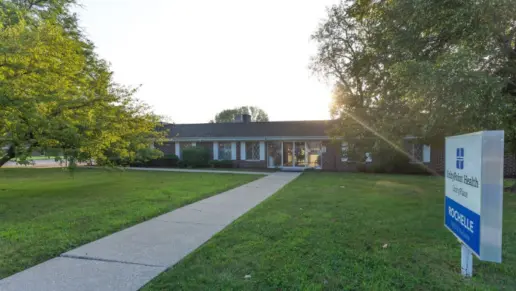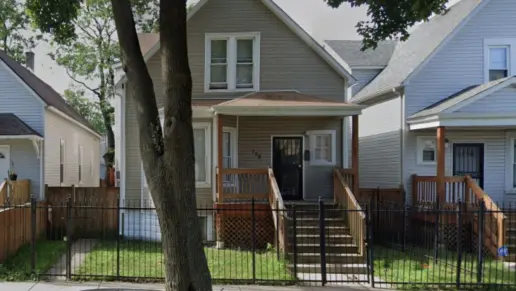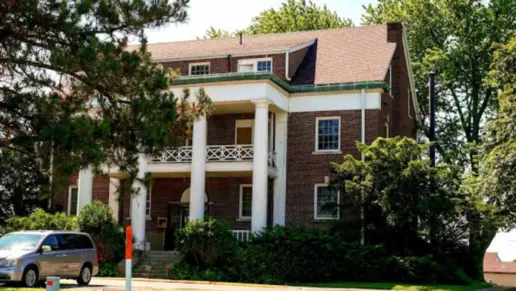McLean County Center is a very good place to get better. Personally, I'm most grateful to my counselor who has been great with me through my recovery process.
About McLean County Center For Human Services
McLean County Center for Human Services is a nonprofit social service organization serving the community of Bloomington, Illinois. Here you’ll find a range of services including outpatient counseling, recovery support, crisis care and mental health care. Recovery services include recovery coaching, spiritual support and peer support. Specialized youth services include counseling and case management for school-aged kids.
For urgent emergency crisis intervention, Center staff can respond quickly in person. They also offer phone assistance and walk-in assessments. This service is for any mental health issue. They also have an urgent behavioral health unit available free of charge to adults aged 18 and over. Counselors and peer staff members give an assessment, followed by short term counseling and medication.
The Recovery Program addresses mental health and addiction symptoms. A personalized recovery plan will be created and will include employment training, group counseling, and recovery coaching. While learning how addiction works, you’ll develop recovery skills and a positive self-image. Medical services and psychiatric care are provided on-site.
One unique part of this organization is they offer a recovery community center within this facility called A New Horizon. They offer recovery support groups and sober social events for adults, youths, and families.
For kids who are struggling with trauma, substance abuse, anxiety, anger or sadness, they offer counseling in area schools or the child’s home. While in sessions the kids will explore their emotions and improve their communication.
People who’ve used the services at McLean County Center for Human Services say it’s a great place with a wonderful and caring staff.
Latest Reviews
Rehab Score
Other Forms of Payment
Self-pay involves paying for treatment out of your own pocket. You can use savings or credit, get a personal loan, or receive help from family and friends to fund your treatment. If you don't have insurance or your insurance plan doesn't cover a specific program, self-pay can help ensure you still get the care you need.
Medicaid is a state based program that helps lower-income individuals and families pay for healthcare. Medicaid covers addiction treatment so those enrolled can use their coverage to pay for rehab. When a program accepts Medicaid the client often pays very little or nothing out of their own pocket.
Addiction Treatments
Levels of Care
Treatments
Mental health rehabs focus on helping individuals recover from mental illnesses like bipolar disorder, clinical depression, anxiety disorders, schizophrenia, and more. Mental health professionals at these facilities are trained to understand and treat mental health issues, both in individual and group settings.
Programs


Clinical Services
Cognitive Behavioral Therapy (CBT) is a therapy modality that focuses on the relationship between one's thoughts, feelings, and behaviors. It is used to establish and allow for healthy responses to thoughts and feelings (instead of unhealthy responses, like using drugs or alcohol). CBT has been proven effective for recovering addicts of all kinds, and is used to strengthen a patient's own self-awareness and ability to self-regulate. CBT allows individuals to monitor their own emotional state, become more adept at communicating with others, and manage stress without needing to engage in substance abuse.
Group therapy is any therapeutic work that happens in a group (not one-on-one). There are a number of different group therapy modalities, including support groups, experiential therapy, psycho-education, and more. Group therapy involves treatment as well as processing interaction between group members.
In individual therapy, a patient meets one-on-one with a trained psychologist or counselor. Therapy is a pivotal part of effective substance abuse treatment, as it often covers root causes of addiction, including challenges faced by the patient in their social, family, and work/school life.
Nutrition therapy, aka medical nutrition therapy (MNT), is a way of treating physical, emotional, and medical conditions through diet. Specific dietary plans are designed by professional nutritionists or registered dietitians, and patients follow them in order to positively affect their physical and mental health.
Experiential therapy is a form of therapy in which clients are encouraged to surface and work through subconscious issues by engaging in real-time experiences. Experiential therapy departs from traditional talk therapy by involving the body, and having clients engage in activities, movements, and physical and emotional expression. This can involve role-play or using props (which can include other people). Experiential therapy can help people process trauma, memories, and emotion quickly, deeply, and in a lasting fashion, leading to substantial and impactful healing.
Contact Information
108 W Market St
Bloomington, IL 61701


